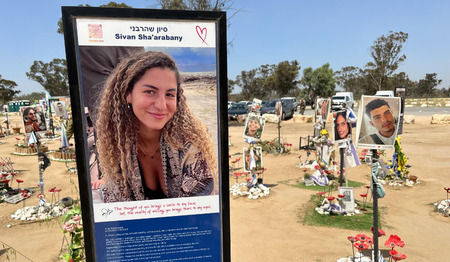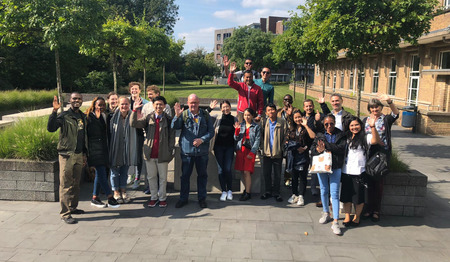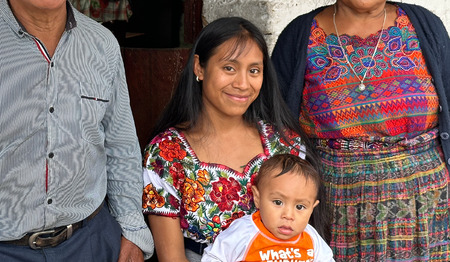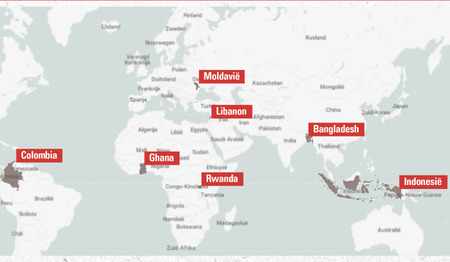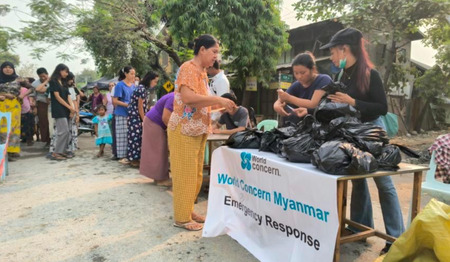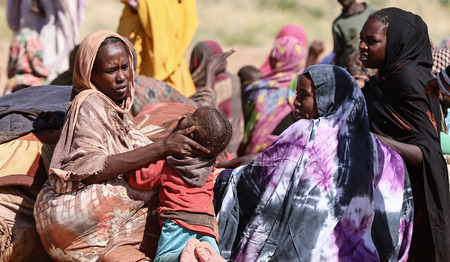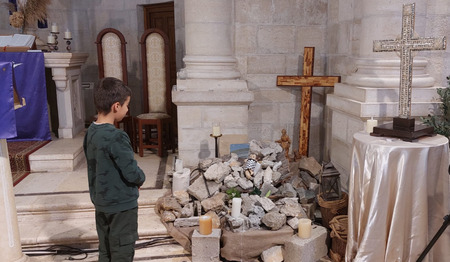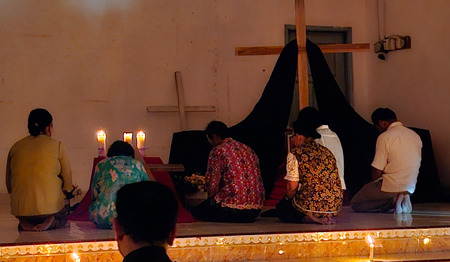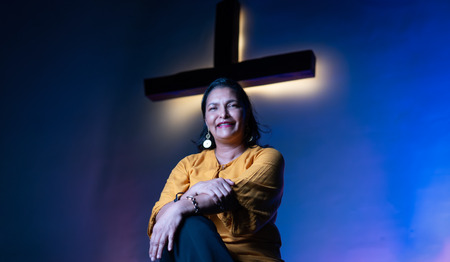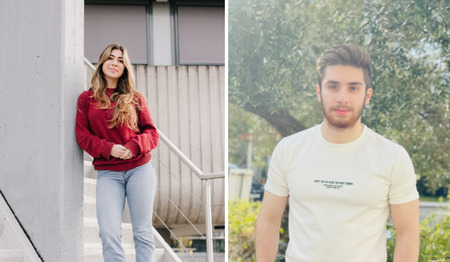Dear partners,
Warm greetings from the Netherlands! I am happy to share with you the first Shared Futures newsletter of 2024, which is full of exciting news and developments.
The team in the Netherlands welcomed two new colleagues. Marten van den Toren is the successor of Martin Teunissen and program officer for Pakistan and Bangladesh. We also welcome Mirjam Wolting, as an AMID trainee, she will work closely with Mirjam Boswijk and with the Shared Futures partner in Cameroon. Both Marten and Mirjam introduce themselves in this newsletter.
The first few months of this year we worked hard to finalize the adapted Theory of Change. In bilateral meetings we have discussed the adapted version of Theory of Change with the country teams. It remains work in progress but we are happy that the learnings from the country teams have been integrated and we thank you for all contributions. The adapted Theory of Change serves as the umbrella for the localized Theories of Actions (which we see as the Shared Futures project proposals from the countries). Please do feel free to contact us if you have any questions.
In this newsletter you will read more about the inspiring training session Maaike and I had with the team from CEOSS in Egypt on the Most Significant Change method. In Kenya, we experimented with participatory video and Most Significant Change. Petri and an expert from Insight Share together with the team in Kenya share their experiences. We hope we will be able to share the videos with all of you as well.
We thank the colleagues from Prica in Cameroon, who are involved in Shared Futures, for introducing themselves in this newsletter!
Warm greetings
Adriana
Introduction staff from Prica Cameroon involved in Shared Futures
 |
Rév. GOYEK Robert is the Chairperson of the national Programme for Christian – Muslim Relations Africa (PROCMURA ; with PRICA as french acronym), for the North region of Cameroon. He has more than 20 years of experience as a pastor and as a church leader. |
 |
HUYUK DOUBLA Charles is specialist in communication for development. Since a few months he holds the position of Project manager for the Shared Futures project of PRICA in Cameroon. |
 |
ZACHARI HAMAN has a diploma in community development. He is the project assistant and the supervisor in the field in the communities of Mémé and Palbara where the project for Shared Futures is implemented. |
 |
MOUMINE CHERIF is a member of the peace committee of PRICA-Cameroon for the (administrative) area (« Département ») Logone et Chari. |
 |
KLABARA ROMAIN comes from Palbara and works as a community facilitator for the Shared Futures project. He is a community volunteer in Palbara. |
 |
KALTOUMI MALLOUM ABBA, is a woman fron the community in Méme, where she works as a facilitator. |
 |
Dr. MAHAMAT MBARKOUTOU Henri is lecturer and researcher at the University of Maroua, He works as a consultant for PRICA Cameroon related to the Shared Futures project. |
 |
AVAI Jeanine BARA works in the domaine of finances and administration for PRICA-Cameroon. |
What´s happening?
In this section we will give updates on recent news & events from each country.
From Cameroon:
The Shared futures programme in North Cameroon has completed its first year. The reception of the programme by the inhabitants of the two localities where the project runs, is very positive. There is more interest than the project could foresee and can answer to. The economic activities get the most attention, which is logical in a region where economic opportunities are very limited and people are poor.
PRICA -Grand Nord Cameroon is the local branche of PROCMURA, an African network for muslim- christian relationships. It is an honour that the leader of PRICA Grand Nord Cameroon has been chosen to be the chairperson of PROCMURA in April this year.

From Pakistan:
Civil Society Support Program (CSSP) organized several events:
- The Rising Sindh Youth Convention 2024 was organized in collaboration with the Sindhi Cultural and Literary Association (SCALA) Canada at Mehran Arts Council Hyderabad. The convention aimed to raise awareness regarding career opportunities nationally and internationally. It also recognizes the accomplishments achieved by the youth in bringing positive changes to society.
- Exposure visit for REEDs along with their team, community, and youth leaders. The visit aimed to facilitate knowledge exchange, networking, and collaboration.
- Women's Day celebration. The initiative aimed to honor and recognize the contributions of women in the community while promoting gender equality and women's empowerment.
- Stakeholders meeting to discuss the issues related to minorities, women, and children at Hyderabad club. The objectives of the meeting were to highlight SHRC's role in investigating human rights violations and fostering awareness, to offer guidance to governmental and non-governmental entities in resolving complaints effectively, and to focus on the rights of religious minorities, women, and children. This meeting provided a platform and opportunity to share issues, challenges, and solutions in front of the authorities.
- Joint religious celebration, commemorating Iftar, Easter, and Holi. The event, held in Hyderabad, saw participation from diverse communities representing different union councils (UC). Attendees contributed homemade dishes, symbolizing unity and sharing during the Iftar meal. This gesture highlighted the essence of interfaith harmony and mutual respect. The celebration exemplified the spirit of inclusivity as participants engaged in opening the fast together and proceeding to cut the Easter cake. Furthermore, the festivities extended to the joyous observance of Holi, where attendees embraced the vibrant colors, symbolizing unity and joy across religious boundaries.
Rural Education and Economic Development Society (REEDS):
- Youth (57) received scholarships according to their educational programs from Ministry of Religious Affairs and Interfaith Harmony Islamabad.
- Men, women and youth (785 persons) got identity cards under National Database and Registration Authority (NADRA) special registration drive for minority communities with the facilitation of SF leaders.
- Youth (45 incl. males & females) were enrolled in different Government Technical Training Institutes in the project area.
- Youth (17) got jobs after completion of technical courses and they are earning PKR 30,000 monthly.
- The Meesaq Centre in Rahim Yar Khan has resolved 214 issues with the intervention of the District Interfaith harmony committee and community heads. A conflict of minority graveyards was peacefully resolved among Christian and Hindu communities situated near Pattan Manara, Rahim Yar Khan.
- Two exposure visits were organized for professors from University of Lahore, who visited Shared Futures program area Rahim Yar Khan.
- Shared Futures leaders also celebrated World Interfaith Harmony Week in the SF project area and promoted a message of unity and co-existence among different faith groups.
- Scholars are conducting research on the topics:
a) Effect of Shared Future Program initiated by REEDS Pakistan on Women Empowerment, Education and Social Development of marginalized communities in South Punjab,
b) Impact of Shared Future Program initiated by REEDS Pakistan on Education and Social economic cooperation of marginalized communities in South Pakistan (Lodhran and Rahim Yar Khan)

Photo above, left: Visit of St. Thomas Cathedral HYD
Photo above, right: REEDS-SF and CSSP SF group meeting in HYD
Photo bottom, left: Visit of Hindu Temple
Photo bottom, right: Community meeting in Lodhran with M. Phil scholars
To conclude, both REEDS and CSSP have jointly applied for the EU's Call for Proposal, based on the Shared Futures Program. Kerk in Actie wishes both REEDS and CSSP a positive outcome.
REEDS shares two noteworthy quotes from the target communities in Pakistan:
- Mr. Muhammad Akhtar, Lodhran shared:
“Although we have been living together for a long time without knowing each other's religion in the same village, the Shared Futures program introduced new and good friends from Hindu and Christian communities. I am a barber and I have a lot of customers from Christian and Muslim communities. I always share with them my transformed life experience” - Mr. Krishan Das shared:
“There is a positive change in communication patterns as well. I feel honored to be Hindu now before I used to escape to show my identity with others”
From Kenya:
Greetings from Kenya! After almost two-and-a-half-years of implementation, we are now about to finish Shared Futures phase 2 - Youth leading the way to Peaceful Interfaith Coexistence. We are grateful and proud of the results achieved in this period. Over the years we have seen significant changes in the communities, from improved livelihoods to more religious tolerance and improved mental health with our youth.
At the moment of writing, we have just finished a 9-day training in ‘Participatory Video-Most Significant Change’ (PV-MSC) to capture the impact experienced by the beneficiaries on video. Through story circles and selection of stories by the community members, we have gained much insight in how change took place. In the whole process, it’s not the project staff but the community members themselves who are in the lead. They decide what is most significant to them! It’s been an extremely inspiring and valuable training.
We are happy and grateful for having the opportunity to continue with the project after phase 2. In the coming month we will have the project evaluated by an external consultant. Based on the results and recommendations we will develop a new proposal for Shared Futures phase 3. We’re very much looking forward to applying all the lessons that we have learned, including PV-MSC.

From Egypt:
Adriana de Fijter and Maaike Wigboldus of Kerk in Actie were in Egypt in March for a training on MSC (most significant change) for 10 staff members of CEOSS for 4 days on a beautiful location….the C-(EOSS) boat on the Nile.
CEOSS just started with the 2nd phase of Shared futures. This time not only in two villages in Beni Suef, but also two in Minya. Besides giving a general introduction on Shared futures and the (updated) ToC, we emphasized MSC story collection and selection. The selection part was new. Together with CEOSS staff we went to Beni Suef on the last day to practice story collection and selection with beneficiaries of the first phase of the project.
CEOSS appointed a facilitator and a note taker for each group of 8 beneficiaries (that would work the best, but many more showed up). While sitting in a circle, every beneficiary had to answer the following question in five minutes:´What is the most important change in your life due to participating in the project and why?´
By also having to formulate the why, people shared their values. The note taker wrote down each story in key words followed by the values that people mentioned. After everyone had shared their story, the beneficiaries had to select the story in which they thought the Most Significant Change had happened. It was a very exciting exercise. People really liked to share their stories and became more and more enthusiastic when hearing each other’s stories. It was also very nice for the CEOSS staff to hear about the changes people talked about, like improved relationships with each other, new skills and more income. Before some staff had wondered: which story should I select for a case story? Which beneficiary should I interview? How do I determine what is most significant? By sharing and selecting the MSC story like we practiced in this story circle, it became obvious which story to select and with whom to do an additional interview for a case story.
We wish CEOSS all the best while using the MSC method during the second phase of the project.


From Ghana:
Interfaith & Youth Coalition in Northern Ghana
In Ghana, Muslims and Christians live together peacefully, with the southern part of the country being in majority Christian and the northern part predominantly Muslim. However, the resurgence of terrorist activities in the neighbouring Sahel countries and prevailing economic challenges and unemployment among the youth are a fertile ground for religious tensions. The Centre for Interreligious Studies and Engagement in Africa (CISEA) of the Akrofi Christaller Institute, the Christian Council of Ghana – Northern Sector Office and the Presbyterian Lay Training Centre in Tamale have been working on programmes that promote increased engagement, understanding and tolerance between Christians and Muslims and give opportunities to young people to be empowered. The three organizations have formed the Interfaith & Youth Coalition in order to bundle their efforts and step up the scope and impact of their work in the Northern part of Ghana. The coalition aims at sustainably building the capacity of young people, religious and traditional leaders and other interest groups in the area of interfaith relations and tolerance and at empowering youth in diverse ways to be productive in life and eschew violence, contributing to the development of a peaceful and tolerant society.

From the Netherlands:
In February and April we have had two training sessions given by a consultant from Impact House The first training day focussed on how to connect the Theory of Change to the Theory of Actions. We learned how to make our assumptions explicit as this is important in the ToC method. The consultant also provided us with supporting tools in the process of visualizing theories of action. The second session focused on the research frame. What do we want to measure and how? We are reviewing the research frame and the various templates based upon the adapted ToC. We also aim to make a more explicit link between the qualitative data received through MsC and the quantitative data received via the annual reports from the partners.
We are also in touch with several stakeholders in the Netherlands as we hope to start a Shared Futures project in 2024 in the Netherlands as well.

Introduction of new colleagues in the Netherlands
Marten van den Toren-Liefting

I would like to introduce myself as the Programme Officer at Kerk in Actie, for both Pakistan and Bangladesh. I will also be working within the Shared Futures team. I live in Groningen, a city in the north of the Netherlands. I am married to Tirtsa, who is a pastor at a local church, and we have a daughter called Maria. I was trained as an anthropologist at Utrecht University. During my academic formation, I focussed in particular on how churches and faith-based organisations engage with broader society. Following my university studies, I worked as a PhD researcher at a Protestant Theological University in Amsterdam and Groningen. In this position, I researched how Pentecostal churches participate in and contribute to civil society.
My personal history, career, and academic formation have given me a passion for working with churches, CSOs and NGOs, and discovering how we might work toward peace, alleviate poverty, and offer a home to migrants. I feel privileged that in my new role in Kerk in Actie I can continue to contribute to this important work. I look forward to working and partnering with you. I also look forward to meeting you in person and experiencing your work first hand.
Mirjam Wolting

Hi, it's nice to meet you! I'm Mirjam Wolting and last February, I started working at Kerk in Actie as an AMID trainee (AMID stands for Advanced Master in International Development). This means that next to my work for Kerk in Actie as Programme Officer for Cameroon and Burkina Faso, I also go to university every Friday. In this international classroom setting, we learn about international development and we connect the practical side of our jobs to the academic side of the programme. At Kerk in Actie, I'm also part of the Shared Futures team. I'm very enthusiastic about this, especially given my background in International Relations and Conflict studies, and look forward to working on these interesting topics!
Practical
The next newsletter will be shared at the end of November. Please provide your input before the 15th of November. You can send it by e-mail to Adriana de Fijter, a.defijter@protestantsekerk.nl.


